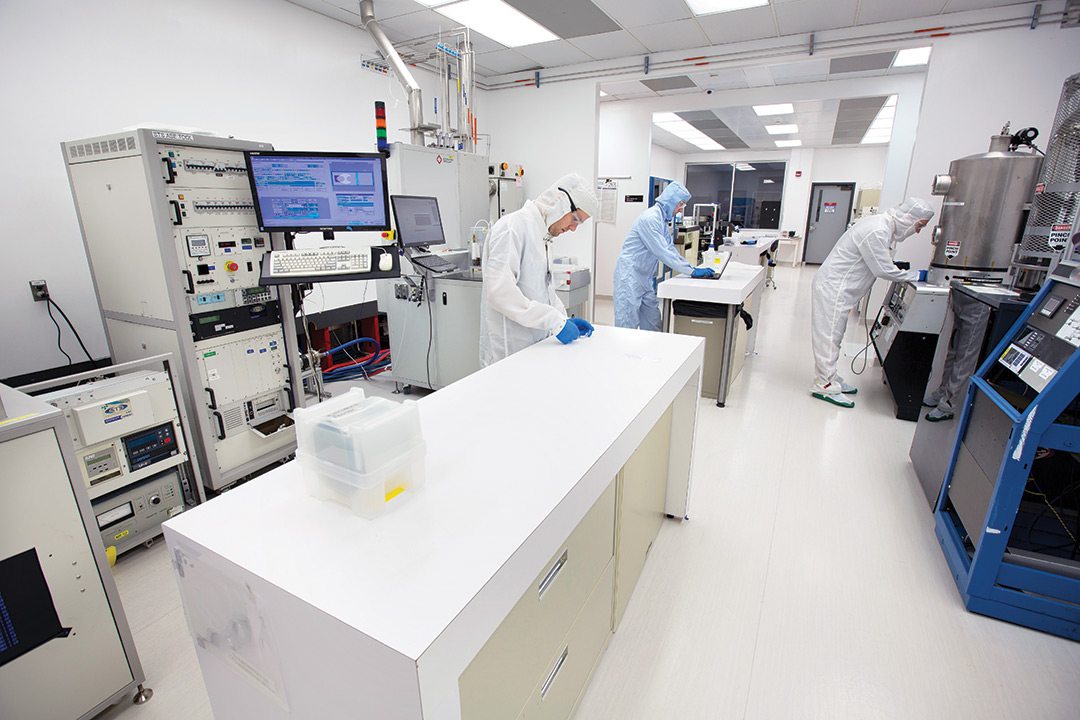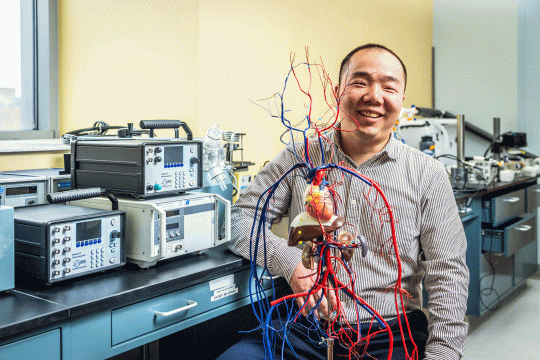Upcoming changes will advance semiconductor research
Carlos Ortiz
RIT was awarded a $1 million grant from New York to renovate its existing cleanroom, shown here.
RIT is building upon its successful history of semiconductor development and research through an expansion to its cleanroom facility with help from New York state.
Today, the Semiconductor and Microsystems Fabrication Laboratory in Kate Gleason College of Engineering serves as a teaching and research lab, a testing facility for corporate partners, and a resource for multiple levels of workforce development training. Its future aim is to help drive the revitalization of the semiconductor industry in the United States.
Project planning for upgrades to the cleanroom, which is a centerpiece of microelectronic engineering, is nearly complete. Phase I construction is expected to launch early in 2023.
Changes will include upgrades to filtration and air handling systems, the addition of new wet processing stations to prevent cross contamination, and the creation of 5,000 square feet of collaborative research space focused on biomedical applications.
New York state has made significant investments in its strategy to become a semiconductor hub. RIT is positioned to be a major academic, economic, and employment resource for this vital industry in the region and in the country.
RIT was awarded a $1 million Higher Education Capital Matching Grant (HECap) from the state that will be matched by the university and used to renovate the lab. In October, Micron Corp., an international computer chip manufacturing company, stated it would invest heavily in the state, building a new computer chip fab facility in Central New York.
RIT Nano Laboratories will remain a place where students learn the intricacies of developing computer chips and where new materials are continually tested to expand chip capacity.
Relationships with regional and national companies will expand as they assess how computer chips will be integrated into the newest technologies, and current employees in industries can receive training for needed skillsets related to electronic assembly and chip manufacturing.
According to the Semiconductor Industry Association, U.S. semiconductor companies have 47 percent of the global chips sales market, but only 12 percent are manufactured in the U.S. Demand for computer chips is outpacing supply, but this is on target to change.
Built in the mid-1980s to complement the microelectronic engineering degree program, the lab was the first of its kind at the time, and the program led the way to train engineers in what would become a powerful global industry.
RIT graduates are skilled in fabrication techniques used to build computer chips that power newer technologies, such as artificial intelligence, quantum computing, biomedical sensors, and integrated photonics. These technologies enable advances in smart systems for healthcare, transportation, manufacturing, and defense and security, among others.
This story is part of the 2023 President’s Annual Report. Read more stories from the report.












